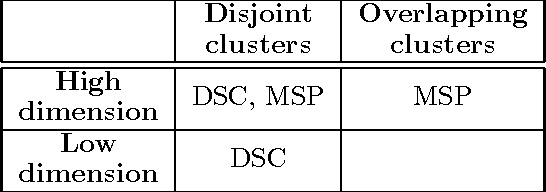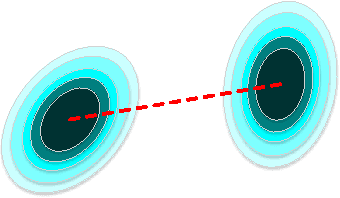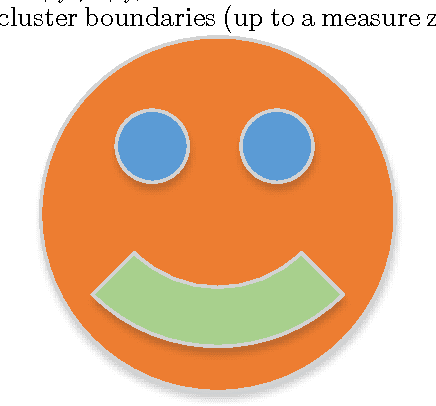Using Multiple Samples to Learn Mixture Models
Paper and Code
Nov 28, 2013



In the mixture models problem it is assumed that there are $K$ distributions $\theta_{1},\ldots,\theta_{K}$ and one gets to observe a sample from a mixture of these distributions with unknown coefficients. The goal is to associate instances with their generating distributions, or to identify the parameters of the hidden distributions. In this work we make the assumption that we have access to several samples drawn from the same $K$ underlying distributions, but with different mixing weights. As with topic modeling, having multiple samples is often a reasonable assumption. Instead of pooling the data into one sample, we prove that it is possible to use the differences between the samples to better recover the underlying structure. We present algorithms that recover the underlying structure under milder assumptions than the current state of art when either the dimensionality or the separation is high. The methods, when applied to topic modeling, allow generalization to words not present in the training data.
 Add to Chrome
Add to Chrome Add to Firefox
Add to Firefox Add to Edge
Add to Edge